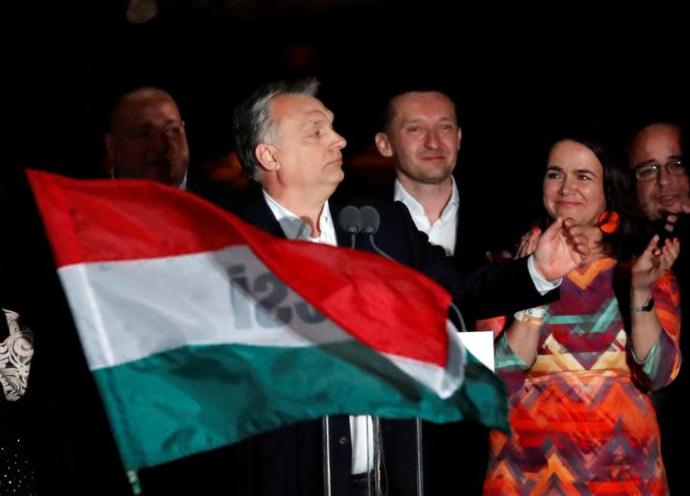Hungary can no longer be considered a full democracy, the European Parliament said in a statement following its adoption of a report on Thursday in a symbolic vote against Viktor Orbán’s government.
"The situation has deteriorated such that Hungary has become an 'electoral autocracy,' there is increasing consensus among experts that Hungary is no longer a democracy," the report said.
"The situation has deteriorated such that Hungary has become an 'electoral autocracy, there is increasing consensus among experts that Hungary is no longer a democracy."
European Parliament report
"Overall, [The European Parliament] expresses regrets that the lack of decisive EU action has contributed to a breakdown of democracy, rule of law and fundamental rights in Hungary, and turning one of its member states into a hybrid regime of electoral autocracy."
While the vote, backed by 81% of MEPs present, has no practical effect, it heightens pressure on EU authorities in Brussels not to disburse billions in EU cash to Hungary that is being withheld over concerns about corruption.
Citing corruption risks, the European Commission is expected to recommend later this week suspending billions earmarked for Budapest from the bloc's 1.1 trillion euro ($1.1 trillion) shared budget for 2021-27, according to Reuters.

70% of Hungary’s cohesion funds may be cut
The European Commission is expected to propose cutting 70% of Hungary’s cohesion funds on Sunday, but will also open the door to a compromise, according to two MEPs familiar with discussions.
“More or less what we hear is that the commission will propose … these sanctions or financial measures,” Moritz Körner, a German MEP, who has been briefed by the commission told The Guardian.
In a recent internal paper, commission officials suggested there was a “very significant” risk over Hungary’s management of EU funds, citing breaches in public interest rules and an unusually high number of contracts awarded to a single bidder – a red flag for transparency watchers. The paper, which has been removed from the commission’s website, suggests a 70% cut in funds as “proportionate” to the risk, according to The Guardian.
That would be the first such EU move under its new financial sanction dubbed "cash for democracy" and agreed two years ago precisely in response to Hungarian Prime Minister Viktor Orban, as well as his allies in Poland, rowing back on liberal democratic tenets inside the bloc, according to CNN.
Orban denies allegations
Orban has been locked for years in acrimonious feuds with the EU, which Hungary joined in 2004, over the rights of migrants, gays and women, as well as the independence of the judiciary, media and academia.
The self-styled illiberal crusader denies, however, that Hungary is any more corrupt than other nations in the 27-nation bloc.
